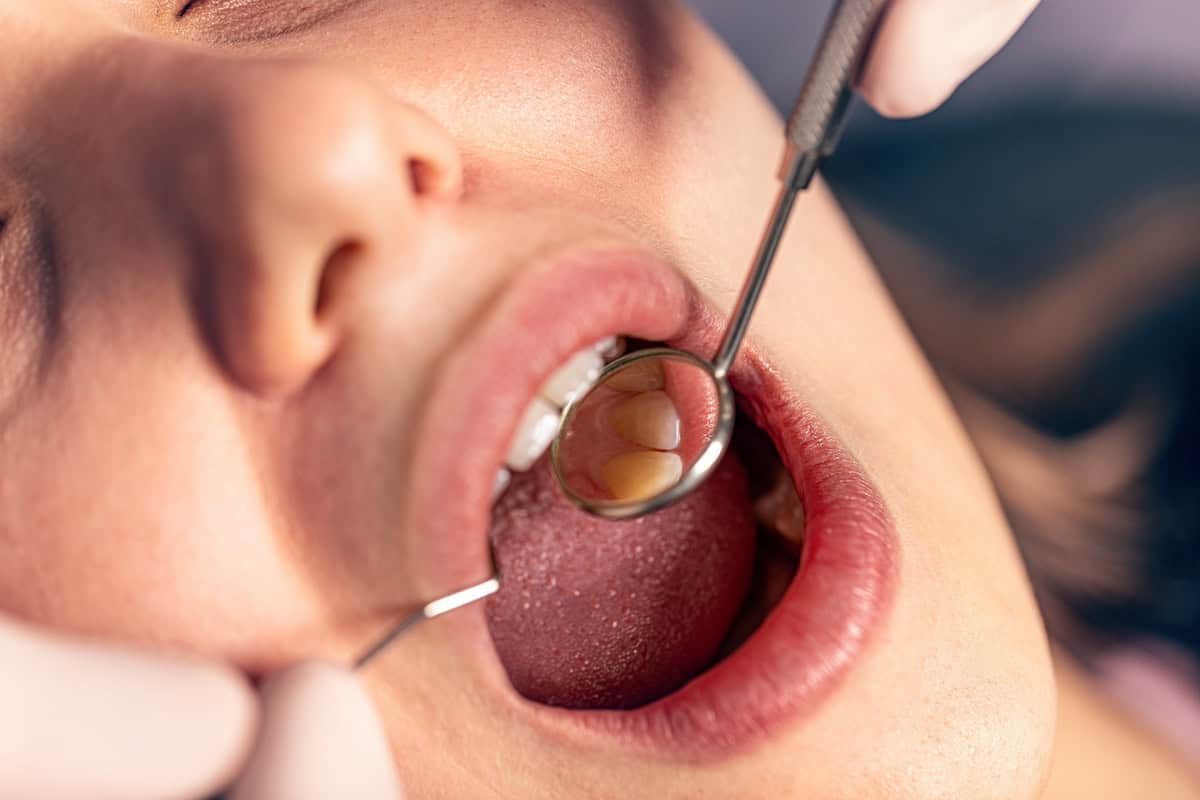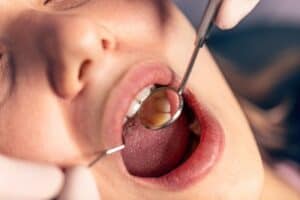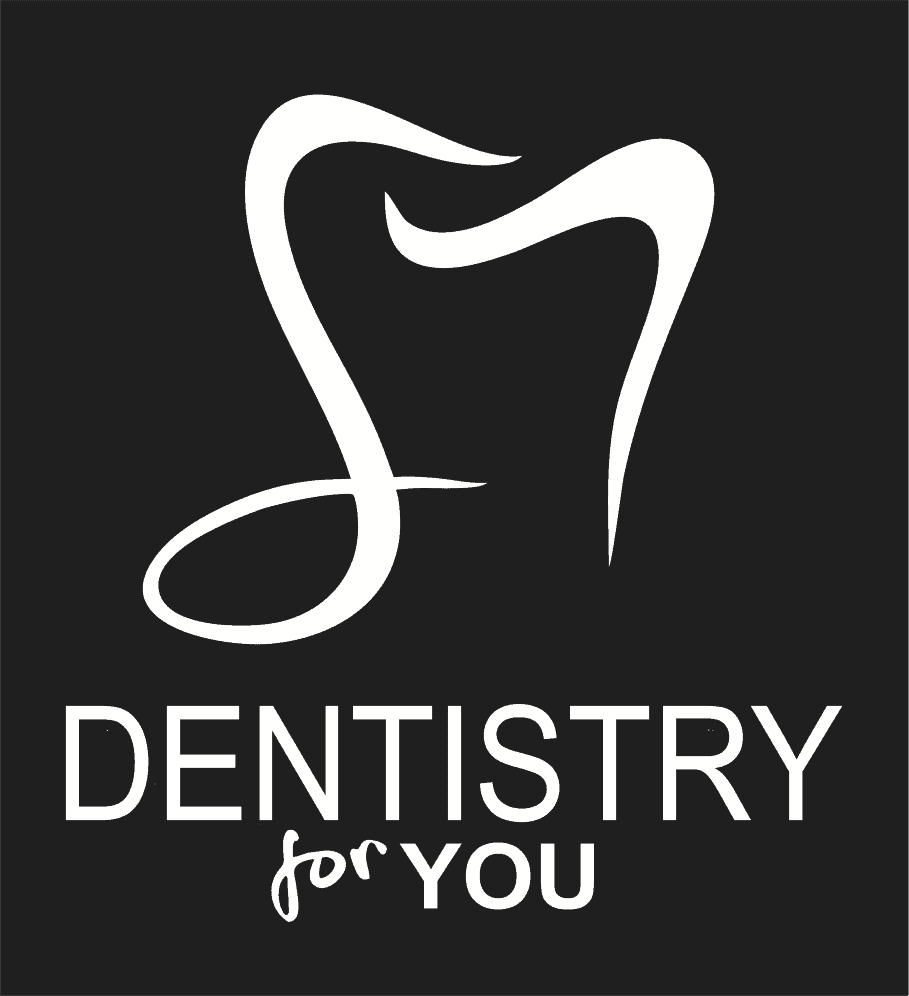
19 Aug How to Prevent Cavities with Simple Home Care Practices
How to Prevent Cavities at Home
Cavities are one of the most common dental problems, and they can lead to serious issues if not addressed promptly. But the good news is that cavities are largely preventable with the right care and attention.
In this month’s blog post, we will explore practical home care practices that can help you keep cavities at bay and maintain a healthy smile.
Understanding Cavities
Cavities, also known as dental caries, are holes in the teeth that occur when the enamel, the hard outer surface of the teeth, is eroded by acids produced by bacteria in the mouth. These bacteria feed on sugars and starches left on your teeth after eating, producing acid that can gradually wear down your enamel, leading to cavities.
How Cavities Form
The process of cavity formation begins when plaque, a sticky film of bacteria, builds up on your teeth. If not removed through regular brushing and flossing, the plaque hardens into tartar, which can only be removed by a dentist. The bacteria in plaque and tartar produce acids that attack the enamel, eventually causing small holes or cavities to form.
Why Preventing Cavities is Important
Preventing cavities is crucial because they can lead to more serious dental issues, such as tooth decay, infections, and even tooth loss.
Cavities can also cause pain and discomfort, affecting your ability to eat, speak, and enjoy daily life. By taking steps to prevent cavities, you can maintain a healthy smile and avoid costly and painful dental treatments.
Daily Oral Hygiene Routine
Brushing your teeth twice a day is one of the most effective ways to prevent cavities. It’s essential to use proper brushing techniques to remove plaque and food particles from your teeth and gums. Make sure to brush for at least two minutes, covering all surfaces of your teeth, including the front, back, and chewing surfaces.
Choosing the Right Toothpaste
Not all toothpaste is created equal. To prevent cavities, look for a toothpaste that contains fluoride, a mineral that strengthens tooth enamel and helps repair early signs of decay. Fluoride toothpaste is especially important for children, as it can help protect their developing teeth.
The Role of Flossing
While brushing is crucial, it doesn’t remove all the plaque and food particles from between your teeth. That’s where flossing comes in. Flossing once a day helps remove debris from areas that your toothbrush can’t reach, reducing the risk of cavities forming between your teeth.

Using Mouthwash Effectively
Mouthwash can be a valuable addition to your oral care routine, especially if it contains fluoride. It helps rinse away food particles and bacteria, freshening your breath and providing additional protection against cavities. Be sure to use an alcohol-free mouthwash, as alcohol can dry out your mouth and lead to other oral health issues.
Foods that Contribute to Cavities
Certain foods are more likely to contribute to cavities, particularly those high in sugar and starch. Candies, cookies, and sugary drinks are some of the worst offenders, as they leave a sticky residue on your teeth that feeds cavity-causing bacteria. Processed snacks and refined carbohydrates can also contribute to the formation of cavities.
Foods that Protect Your Teeth from Cavities
On the flip side, some foods can actually help protect your teeth from cavities. Dairy products like cheese and yogurt are rich in calcium and phosphates, which help strengthen tooth enamel.
Crunchy fruits and vegetables, such as apples and carrots, can also help clean your teeth naturally by stimulating saliva production, which neutralizes acids in the mouth.
The Impact of Sugary Drinks
Sugary drinks like soda, juice, and sports drinks are a significant cause of cavities, particularly if consumed frequently throughout the day. These drinks coat your teeth in sugar, providing a feast for bacteria. If you do indulge in sugary beverages, try to drink them with a meal and rinse your mouth with water afterward to help wash away the sugar.
Lifestyle Habits
The Dangers of Smoking and Alcohol
Smoking and excessive alcohol consumption can have a detrimental impact on your oral health. Smoking not only stains your teeth but also reduces saliva production, which is essential for neutralizing acids and washing away food particles. Alcohol, especially when consumed in large amounts, can dry out your mouth and increase your risk of cavities.
Chewing Gum: Good or Bad?
Chewing gum can be both beneficial and harmful, depending on the type you choose. Sugar-free gum, especially those containing xylitol, can help prevent cavities by stimulating saliva production and neutralizing acids. However, gum with sugar can have the opposite effect, feeding bacteria and contributing to the formation of cavities.
The Importance of Staying Hydrated
Drinking plenty of water throughout the day is essential for your overall health, including your oral health. Water helps wash away food particles and bacteria, keeping your mouth clean and reducing the risk of cavities. Staying hydrated also ensures that your body produces enough saliva to protect your teeth from decay.
Regular Dental Check-Ups
Regular dental check-ups are crucial for preventing cavities and maintaining good oral health. Your dentist can detect early signs of decay and provide treatments to prevent cavities from worsening. Routine visits also allow for professional cleanings, which remove plaque and tartar that you may have missed during your daily oral care routine.

What to Expect During a Check-Up
During a dental check-up, your dentist will examine your teeth and gums for any signs of cavities or other issues. They may take X-rays to get a closer look at your teeth and catch any problems that aren’t visible to the naked eye.
After the examination, your dentist or dental hygienist will clean your teeth, removing plaque and tartar and polishing your teeth to make them shine.
Professional Cleanings and Treatments
In addition to regular cleanings, your dentist may recommend additional treatments to protect your teeth from cavities. Fluoride treatments, for example, can help strengthen your enamel and make your teeth more resistant to decay.
Sealants, which are thin coatings applied to the chewing surfaces of your back teeth, can also provide extra protection against cavities.
Teaching Kids Good Oral Hygiene to Prevent Cavities
Getting kids excited about brushing their teeth can be a challenge, but making it fun can help. Consider using a timer, playing a favorite song, or choosing a toothbrush with their favorite character to make brushing time enjoyable. Creating a reward chart for consistent brushing can also motivate kids to keep up with their oral hygiene.

Preventing Cavities in Baby Teeth
Even though baby teeth eventually fall out, it’s still important to keep them healthy. Cavities in baby teeth can lead to pain and infections that can affect your child’s overall health. Start brushing your child’s teeth as soon as they appear, and be sure to use fluoride toothpaste and floss as soon as they have two teeth that touch.
Recognizing the Early Signs of Cavities
Early detection is key to preventing cavities from becoming more serious. Some of the early signs of cavities include tooth sensitivity, pain when eating or drinking, visible holes or pits in your teeth, and discoloration or staining. If you notice any of these symptoms, it’s important to see a dentist as soon as possible.
What to Do if You Suspect a Cavity
If you suspect that you have a cavity, don’t wait to see a dentist. The sooner you get treatment, the less likely you are to experience pain and complications. Your dentist can recommend the best course of action, which may include a filling, crown, or other treatment to restore your tooth and prevent further decay.
Preventing Cavities to Improve Your Oral Health
Preventing cavities is all about consistency and making the right choices for your oral health. By following a daily oral hygiene routine, eating a balanced diet, avoiding harmful habits, and visiting your dentist regularly, you can keep cavities at bay and enjoy a healthy smile for years to come.
Remember, small changes in your daily routine can make a big difference in your oral health. Please reach out to our team if you have further questions about how to prevent cavities and improve your oral health!





Sorry, the comment form is closed at this time.